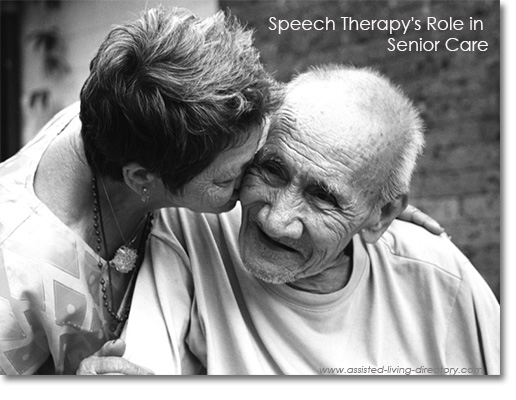By Dr. De Leon
Many of the senior residents currently living in a nursing home and/or assisted living facilities experience some type of medical problem which hinders their ability to communicate needs and desires in an effective manner.
Subsequently, many of the elders suffer isolation, depression, stigma, and inadequate care and support.
This problem will continue due to the fact that as the population advances in age so does the frequency along with a propensity for developing neurological illnesses such as Strokes, Alzheimer’s, Parkinson’s disease (PD), and other dementias; unless we intervene with treatments to improve the lines of communication between patients and caregivers.
The one common denominator among all of these illnesses is that they can affect cognition, swallowing, communication skills, voice projection, as well as voice modulation.
Since all of these problems independently and in conjunction can greatly diminish a person’s quality of life and even lead to recurrent hospitalizations as in the case of poor swallowing causing repeated aspiration pneumonia if not properly recognized and managed. Thus, speech therapy (ST) should play a vital role in the care of every senior especially if they suffer a neurological disease.
The key to improving these deficits is understanding the need for prompt as well as regular evaluation by ancillary health professionals such as speech therapists to assess for dysphagia (swallowing difficulties) early on in disease process. Speech therapy can also be of benefit in very frail individuals and in those who have had cancer, are immunocompromised, had surgical treatments, or received radiation to the head and neck. If not properly assessed the residents of these facilities can develop malnutrition, dehydration and infection which can then worsen their underlying neurological or medical conditions.
How is this accomplished?
Through a series of tests and physical evaluation a ST can determine:
- Dysphagia (swallowing problem): which will then allow them to make further recommendations such as-
- Need for nutritional supplement
- Appropriate diet consistency (i.e. soft, liquid, mechanical soft, etc.)
- Determine risk of aspiration
- Teach swallowing techniques –e.g. take small bites, tuck in chin, drink lots of water, chew well, use straw if needed , or thickened liquids if required
- Recommend Feeding tubes if needed
- Communication Deficits-
- If an elder suffered a stroke, brain tumor, brain injury or other cognitive impediment interfering with communication and is able to learn; they can teach how to use either Low- tech AAC (Augmentative & Alternative Communication) device boards (which consist usually of pointing at pictures or letters) or High-tech AAC Device (which are computerized programmable boards)
- If the problem a senior is experiencing in communication is due to dementia- then they can provide memory books with pictures and or/ simple phrases to stimulate existing long- term memory skills.
- Voice Deficits- one of the biggest problems with PD is Hypophonia (soft voice) often times leading to frustration, anxiety, and social isolation because they are not able to be heard. In cases of voice problems-
- First, always have an ENT specialist evaluate for any underlying pathology such as cancer
- If no pathology found begin a 30 day program known as LSVT (Lee Silverman Voice Treatment) to help with voice projection and increase in volume and begin to practice with friends in loud/noisy surroundings.
As I mentioned previously, it is not only crucial for seniors to have speech therapy to help recover from strokes and prevent aspiration pneumonia due to impaired swallowing from a number of neurological and medical conditions but being able to communicate at any age without difficulty is absolutely vital allowing us to thrive.
If a senior cannot successfully describe his or her needs, if they are in pain, or in need of medical assistance, not only are we not meeting standard of care and allowing for potential emergent situations to arise; but potentially creating a downward spiral of disability and poor quality of life. Therefore, it is important that each one of our elderly residents in our facilities be assessed routinely for any deficits involving voice, communication, and swallowing to allow continued independence and joyful tomorrows via greater self- expression.
Sources:
http://www.ascseniorcare.com/importance-speech-therapy-seniors/
By Dr. Maria De Leon exclusively for Assisted Living Directory
Photo by J. Hanopol





My grandmother is getting to the point where she will need to move to an assisted living facility, and there are so many things to consider when deciding where to go. I hadn’t before thought of the importance of speech therapy as older people deal with the effects various medical conditions. I can see how it can change a life to be able to describe your needs, like you mentioned. I will add this to the list of things to consider as we look into supported living for my grandma. Thanks!
April, thank you for your comments and I am sorry you are having to look for an assisted living facility- but there are many great sites where she can flourish and still get some independence. this is a great site to be in to help with those decisions…look at the state that you live in and carefully look at those recommended..i am sure that my other colleagues in this site as well as the owner of this site_ David Barnette may have some recommendations for you or help answer some questions. best of luck and yes keep swallowing issues in the back of your mind. sincerely, Dr. De Leon